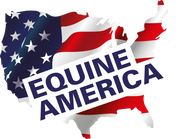Autumn Forage: Support your horse's nutritional needs
Summer appears to have ended with a bang, and straight back to rain for many parts of the UK! With the days drawing in and the change of seasons, we know hay supplies are a hot topic in preparation for the winter so let’s have a look at how you can support your horse nutritionally.
Forage
After a long hot dry summer, with many areas struggling with grass growth, you may be worrying about having enough forage (e.g. hay) provision to see you through the winter. Here are a couple of tips to help your hay last longer.
Is your horse or pony a good doer? If they are prone to weight gain, carefully weighing out hay (before soaking) will ensure they are getting the right amount to aid their weight loss but also avoid wastage. You may also be able to mix in good clean straw to their diet (providing no asthma or dental issues), to provide roughage without calories. When feeding straw it needs to be added in carefully and slowly to avoid the risk of impaction colic, so monitoring their droppings and water intake is vital. For many horses and ponies, you can provide one third of their roughage allocation as straw, but speak to a nutritionist for a personalised diet plan. You are looking for good quality clean straw. This is more important than species, so wheat, oat and barley straw can all be used if available.
Alternatively, commercially available unmolassed bags of chopped straw can be used as a partial forage replacer.
For poor doers, or those in harder work that are fed ‘ad lib’ hay, weighing your forage is still helpful. Ad lib simply means free access to forage at all times but it can be incredibly wasteful and some horses may not be eating as much as they need (or you think!). By weighing out their hay rations it can be helpful to work out how much you need to give in a 24 hour period but also to ensure they are actually eating sufficient to meet their requirements. This will also have the added benefit of minimising wastage, saving money and helping your hay supply to last longer, whilst ensuring your horse is eating sufficient forage to maintain weight and condition.
For weight loss, we usually look to provide 1.5% of bodyweight as forage, for example a 500kg horse would aim to receive 7.5kg of forage in a 24 hour period. Obviously soaking and type of hay will also need to be taken into consideration.
For maintenance of weight, the average 500kg horse would be looking to receive 2% of their bodyweight as forage, 10kg of forage in a 24 hour period.
Horses who struggle to maintain weight, those in harder work, or brood mares in the last trimester and during peak lactation have higher nutrients requirements and may consume 2.5%-3% of their bodyweight as forage., equating to 12.5-15kg of forage for a 500kg horse.
Remember to make all changes in forage gradually, to allow the gut microbiome time to adapt to the new forage, whether that is a new source of chaff, hay or haylage. Its also important to introduce new Autumn/Winter paddocks gradually if possible, especially if there is more lush growth in these new paddocks after the rain than horses have been used to on bare Summer paddocks, to avoid digestive disturbances.
Essential Vitamins and Minerals
Forage, in terms of weight and volume, should form the main part of the diet, but to ensure a balanced diet, essential vitamins and minerals are required to meet daily requirements and maintain health. This is easily achieved with a fully fortified feed (at the full recommended serve rate), balancer or Vitamin and Mineral Supplement such as Every Day Vitamins and Minerals, or MultiVit Treats. Your choice of supplement will depend on their workload and life stage as requirements will vary.
Whilst a horse or pony just on forage (grass and/ or hay) may not be truly deficient, they are likely to be suboptimal in key nutrients to maintain health and well-being. As grass intake reduces over the winter either due to increased stabling, or due to natural variations in the grass, key vitamins such as Vitamin E (a vital antioxidant) and B Vitamins will need topping up.
For further information or help with a personalised diet plan, please contact our Nutrition Helpline for advice from our team of experienced Nutritionists and Vets.
 Skip to content
Skip to content

